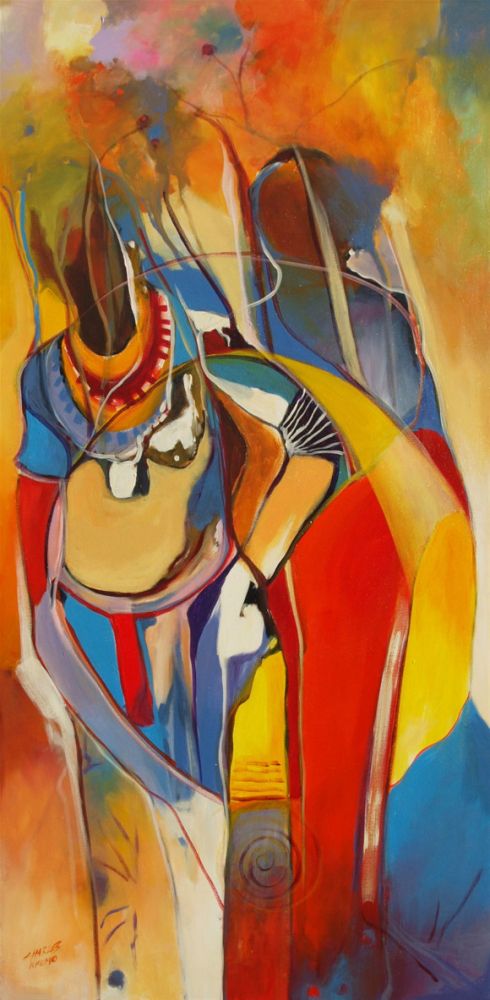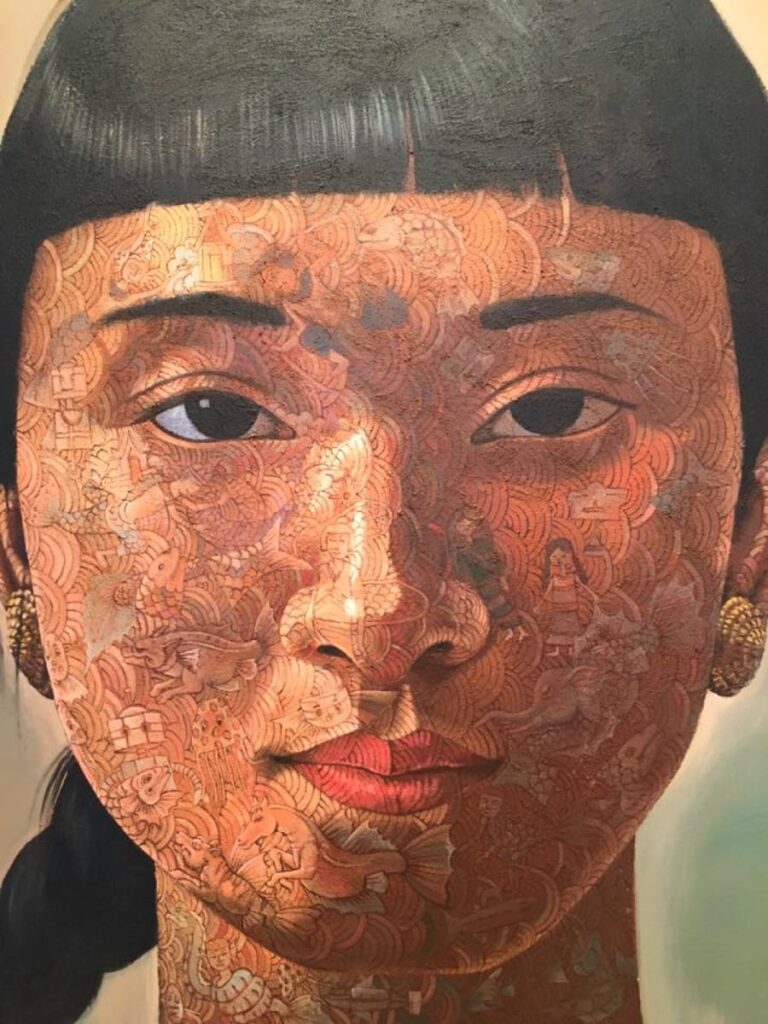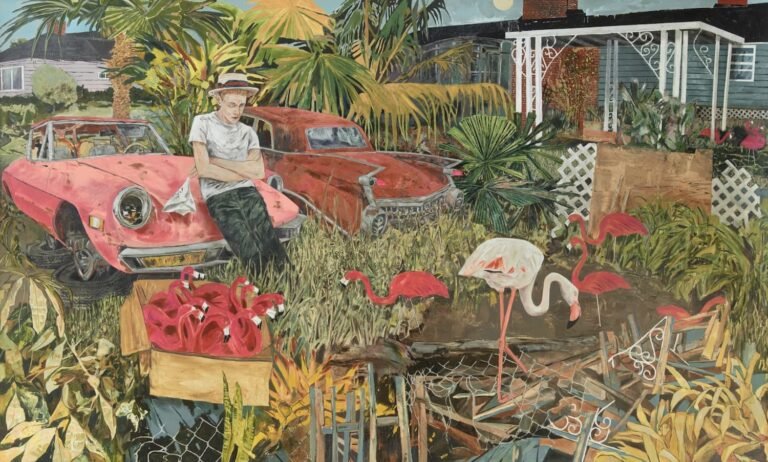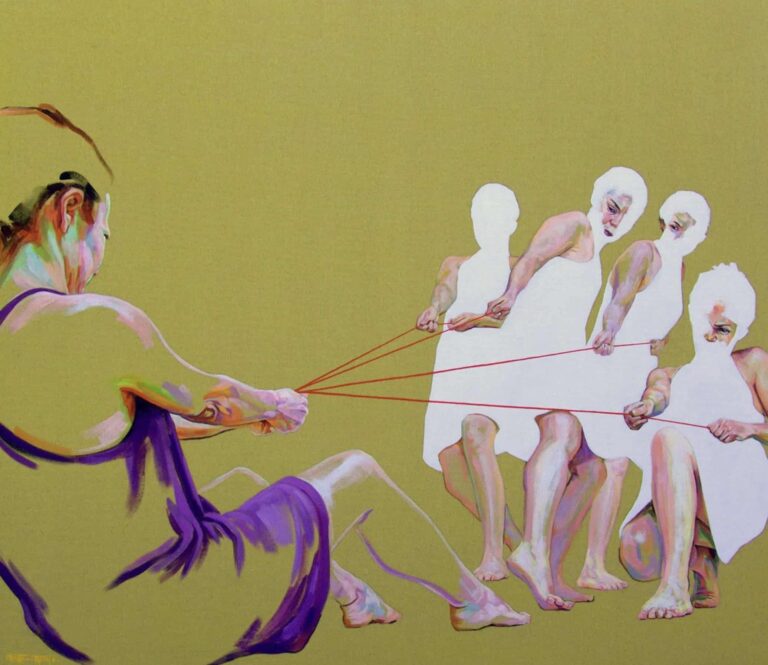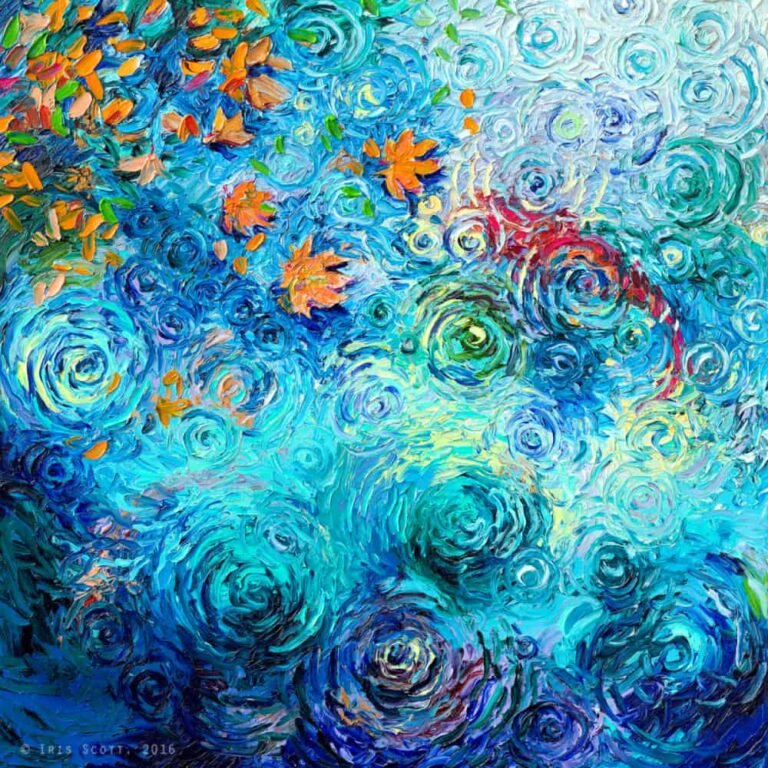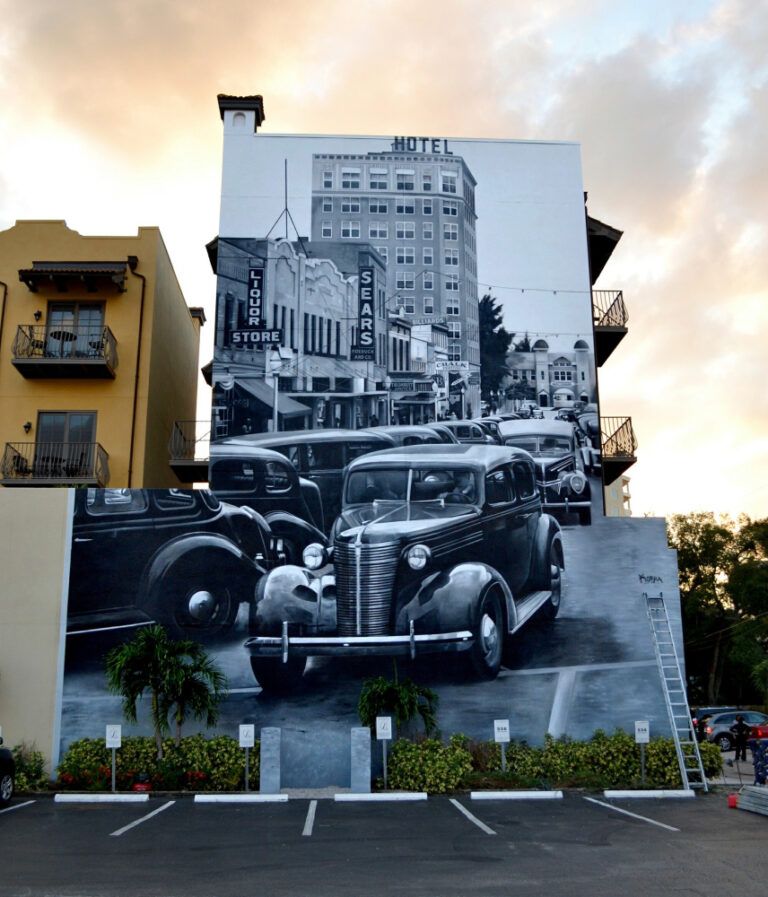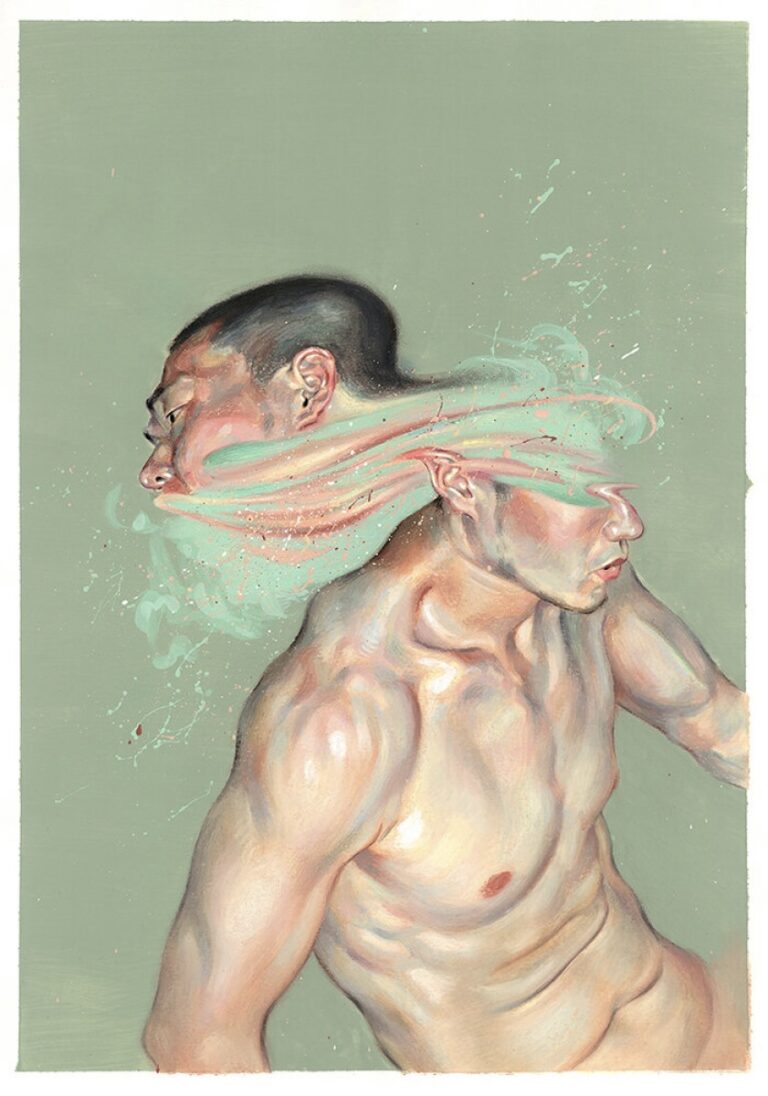Charles Nkomo’s paintings proudly parade the hues of life, seemingly making the primary colours of childhood go beyond those you thought you knew. Nkomo’s clearly not afraid for his artwork to be the brightest in display and rightly so, his contemporary paintings having more than a touch of the abstract, whilst being imbued with emotion and a sense of placement. The themes varying from; the Zimbabwean landscapes that surrounded his childhood; figures of women conversing, or at work; to the urban-scapes that express a hub of activity and a society full of inhabitants. More unusual themes by Nkomo are the painted heads of bulls, the viewer directed to focus not on the features of its face, but on the immediately identifiable outline of its horns, the bull’s skin filled with an abstraction of patterns that Nkomo’s art does so brilliantly. The cattle representing a sense of life, their colours not dulled but exaggerated.
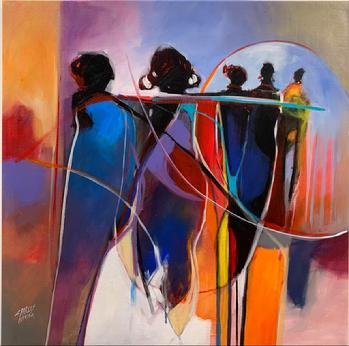 Tales of the Past, Acrylic on Canvas. Charles Nkomo. Image is courtesy of Mary Martin Gallery
Tales of the Past, Acrylic on Canvas. Charles Nkomo. Image is courtesy of Mary Martin Gallery
There’s a great deal of expression in Nkomo’s paintings; the colours blending together with rainbow edges, or to swirl and drip downward with sinuous lines, such as in the painting The Maasai. Apart from Nkomo’s art being more than aesthetically captivating, it also investigates and displays socio-political and economic issues. For example the threat to those practicing more traditional lives; their culture and way of life being drastically impacted by the rapid expansion of urban and social development. Nkomo’s paintings celebrating and embracing a culture that could soon become one of memory; Tales of the Past. While in Hope You Will Enjoy a small group of women appear to be working in a line, their hard work and hours being spent to make something that – suggested by the title – they themselves will not experience, and as such hints at gender, economy and social divisions.
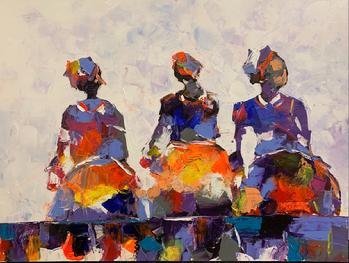 Hope You Will Enjoy, Acrylic on Canvas. Charles Nkomo. Image is courtesy of Mary Martin Gallery
Hope You Will Enjoy, Acrylic on Canvas. Charles Nkomo. Image is courtesy of Mary Martin Gallery
Nkomo’s work highlights the many levels of everyday life, whilst also showing a personal insight and appreciation of African culture.

